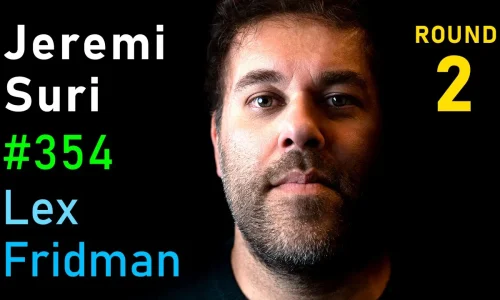See all Lex Fridman transcripts on Youtube

Jeremi Suri: Civil War, Slavery, Freedom, and Democracy | Lex Fridman Podcast #354
2 hours 59 minutes 52 seconds
🇬🇧 English

Omnivision Solutions Ltd
- Getting Started
- Create Transcript
- Pricing
- FAQs
- Recent Transcriptions
- Roadmap